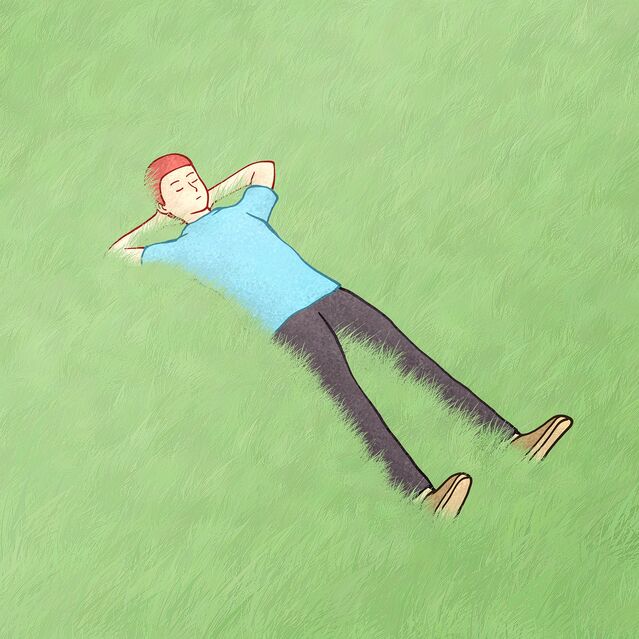Sleep
A Counterintuitive Trick to Help You Fall Asleep Fast
Give the sheep the night off and try this technique.
Posted August 8, 2022 Reviewed by Lybi Ma
Key points
- Paradoxical intention is a psychotherapeutic technique that involves making an undesirable behavior worse.
- Paradoxical intention may help people fall asleep.
- Paradoxical intention may also help with anorexia, OCD, and phobias.

We've all been there, tossing and turning in our beds, unable to fall asleep. Looking at the clock and beginning to feel more and more anxious with every passing minute we cannot fall asleep. The endless thoughts race in our heads. “You will be so tired tomorrow!” “What will I do if I can’t sleep!” “I have an important test tomorrow that I need to do well on!” You feel frustration and pressure. We may start playing on our phones or put the television on to help us feel tired. If you can relate to this scenario, then you know there is nothing about this that is calming, relaxing, or sleep-inducing.
When we begin experiencing this sense of pressure to sleep, we are putting our autonomic nervous system into a state of fight, flight, or freeze. Indeed, it becomes exceedingly difficult to fall asleep if your body is on high alert. Oddly, when we tell ourselves to fall asleep the exact opposite reaction occurs, and we end up creating anxiety. Many times clinicians will use an approach known as paradoxical intention, to help people fall asleep.
What Is Paradoxical Intention?
Paradoxical intention (PI) is a psychotherapeutic technique that instructs clients to continue or make the undesirable behavior worse. Although the premise is very counterintuitive, the goal is to make the client feel they have control over the situation. Psychologists Ralph M. Turner and Michael Asher used PI with those who had trouble sleeping. They would instruct people who had trouble sleeping to try and stay awake for as long as possible. They concluded that people who had sleep onset insomnia had high levels of performance anxiety, and by taking the pressure off of falling asleep, they were able to fall asleep.
Paradoxical Intention Can Help With Other Difficulties
PI has also been proven to be a helpful technique for those struggling with OCD, phobias, and other anxiety disorders. I use PI with my clients who struggle with OCD, and it helps them to resist their compulsive behaviors.
For example, if I have a client who washes their hands for too long, I may recommend that the client tell themself: “Keep washing your hands, and never stop.” Even though this sounds opposite to the desired goal, it seems to be more effective in reaching the goal.
Additionally, according to the American Journal of Psychiatry, PI was applied to see if would help chronic anorexia nervosa. They discovered that patients treated with PI showed successful outcomes. Therefore, they recommended further studies. Also, PI has been studied to see if it can help control premature ejaculation.
Three Ways to Use Paradoxical Intention to Help You Fall Asleep
- Tell yourself to not fall asleep, no matter what.
- Tell yourself that you need to feel as sleepy as possible tomorrow.
- Tell yourself to not close your eyes.
References
Paradoxical intention for insomnia: A systematic review and meta-analysis. Journal of Sleep Research. Markus Jansson-Fröjmark, et al.


